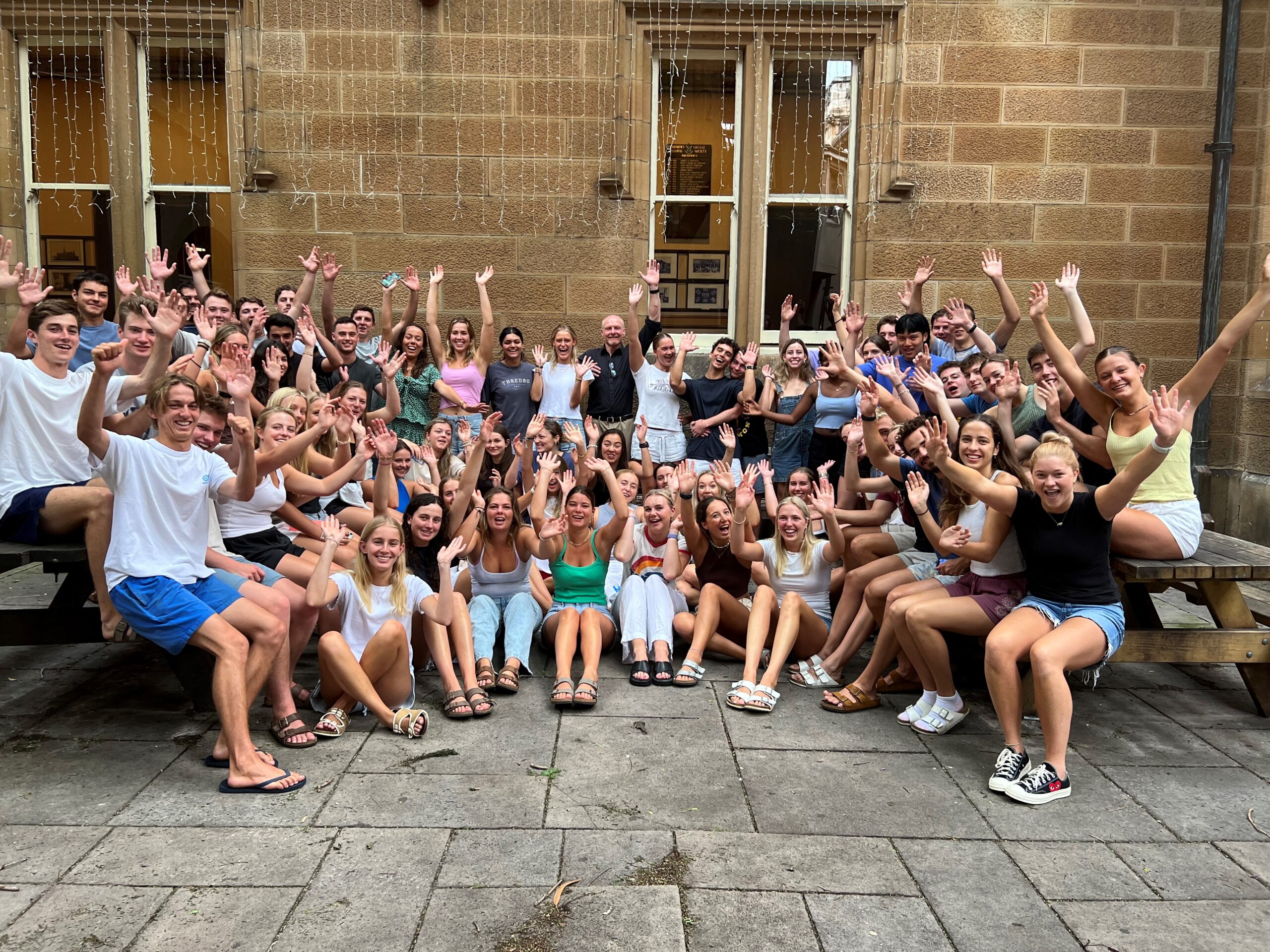Contact Us
Tel: +61 (2) 9565 7300
The Andrew's Difference
The Benefits of Living At College
There are a few things that make university colleges – as distinct from accommodation facilities – special:
- Activities – Colleges offer a seemingly infinite number of opportunities for students to take advantage of: social events, sport, community service, music, dance, hack-a-thons, parties, writing competitions, leadership opportunities, tutorials, drama performances, jam nights, lectures, student committee meetings… there is always something for those in college to be part of.
- Scale – Colleges provide so much more than a room on campus. Their small scale – up to 380 students, compared to more than 70,000 at the University of Sydney – enables them to offer a rich and intimate experience that cannot be found anywhere else on campus.
- Support – Colleges all have well-being and academic support programs that help students navigate their way through the challenges of university life. Although the type of support offered at each college is tailored to that institution’s needs, all provide some form of academic mentoring and pastoral care.
- Community – The vibrant social atmosphere, rich histories and affiliative traditions of colleges create enduring communities. Friendships and other relationships formed in colleges last a lifetime. This is because all colleges are limited in size and are committed to the principle that university life should be multifaceted and enjoyable.
- Communal Dining – All of the University of Sydney Colleges provide three hot meals per day. The benefit of dining halls extends beyond mere convenience; communal dining provides an opportunity for members of college communities to come together and engage in conversation.
- Scholarships – Most colleges offer scholarships (though the extent of this offering can vary greatly). In some cases, colleges help students access university when they would otherwise be unable to afford relocation costs.
- Tutorials – Most colleges offer regular group tutorials that supplement study undertaken at university. The small scale of college tutorials is conducive to fruitful academic discussions, and erodes the dividing line between friendship and learning.
- Student Leadership Opportunities – All colleges have student leadership teams. Students who attend a college enjoy the opportunity to refine their leadership skills throughout their university lives and manage a vast array of adult responsibilities.
The Andrew’s Difference
But there are a few attributes that makes St Andrew’s College particularly distinctive:
- Culture of Leadership & Excellence – Our College has offered the world many extraordinary leaders and great minds, including Australia’s only President of the UN General Assembly (Doc Evatt), the designer of the Sydney Harbour Bridge (John Bradfield) and nine Wallabies (rugby union) captains. Our commitment to excellence underpins everything we do. It explains why we have won each of the four intercollegiate cups more times than any other college, why we require all students to achieve at least a credit average in their degrees, and why our students exceed the University of Sydney average mark by more than 10 marks.
- Commitment to Student-Centred Responsibility – At St Andrew’s College, we ‘prepare the student for the road, not the road for the student’. Though we certainly have fences, we set them wide where possible. In practice, this means trusting students with a range of responsibilities, including the independent management of the student leadership team. Our Students’ Club, a self-governing student organisation within the College, embodies these ideas. The Club is trusted with many disciplinary responsibilities consistent with the maintenance of a values-based community and manages its own financial affairs, with a turnover of up to $500,000 per year. Many elements of our Education & Student Life program are run through the Students’ Club.
- Comprehensive range of programs, events, societies and other activities – St Andrew’s College offers one of the most expansive student programs in the world. There is always something for students to participate in, including but not limited to:
- Subject tutorials
- Academic mentoring
- Informal college social events (including Highlander Bar Evenings)
- 72 Student Committees
- Professional Development Seminars
- Weekly formal dinners
- Social sport
- Intercollegiate sport competitions (Rawson, Rosebowl and University Cup)
- Intercollegiate creative arts and public speaking competition (Palladian Cup)
- The St Andrew’s College Drama Society (DramSoc)
- Gala Concerts
- Awards presentation evenings
- Lectures
- Student leadership training
- Musicals
- Jam Nights
- Community service
- Dinners at the Principal’s Lodge
- Entrepreneurial competitions
- Debating
- Chapel services
- Ensemble rehearsals
- Highland Ball
- Senior Common Room short talks
- Mother’s Day and Father’s Day dinners
- Victory Dinners (celebrating success in creative arts and sports competitions)
- Pre-tertiary programs involving current students
- Online competitions
- Essay prizes
- Academic discussion boards
- Language courses
- Scholarships – Andrew’s offers the most scholarships per capita in the country: $2 million annually in 2024. We award six types of scholarships from modest amounts up to full-fee relief.
- Scottish Heritage – St Andrew’s College has a deep connection to the Scottish Enlightenment. Many of the foundational values and principles fostered by the College are derived from Enlightenment texts. These values and principles include challenging authority that refuses to explain itself, actively pursuing human progress, and using reason – not superstition – to solve problems. Our Scottish heritage manifests in more than intellectual life. From the tartan hanging in the dining hall to the presence of bagpipes at sporting events and formal occasions, the College’s Scottish heritage is ever-present.

